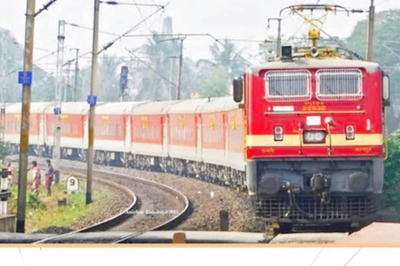
views
New Delhi: With jobs being at the heart of the discussion ahead of the last complete budget of the National Democratic Alliance (NDA) government before the 2019 elections, Swadeshi Jagran Manch has pointed out that the government is stressing on rural employment as a compulsory consideration.
“Youth employment and promotion of jobs in general is most likely to come up in the budget. Rural jobs is the main focus,” said Ashwini Mahajan, national co-convener, Swadeshi Jagran Manch.
In connection with the same, Prime Minister Narendra Modi met Niti Aayog, sector experts and representatives on 10 January to discuss major issues before the budget.
Talking about the meeting, Mahajan explained, “Issues relating to employment generation were explained. Experts made presentations on it. The SP Gupta report was also referred to.”
Gupta, a former member of the then planning commission, through his committee had submitted a report in May 2015 regarding medium and small scale industries contributing to generation of employment and how the sector can be used in rural areas in promoting jobs.
“Small enterprises, i.e., small scale units, not only play a crucial role in providing large scale employment opportunities at lower capital cost than large scale industries, but also help in industrialisation of rural and backward areas, thereby reducing regional imbalance, assuring more equitable distribution of national income and wealth. Small scale industry units are also supplementing and complementing to large and medium scale units as ancillary units,” said the report.
Finance Minister Arun Jaitley has time and again talked of providing support to the medium and small scale Enterprises (MSME). However, the arguably boasted goods and services tax (GST) has caused maximum damage to the small scale industries.
“The Small Scale Industry (SSI) sector has emerged over four decades as a highly vibrant and dynamic sector of the Indian economy. Today, this sector accounts for about 95 percent of the industrial units and is contributing more than 40 percent of value addition in the manufacturing sector and about 35 percent of exports.
As to the contribution to employment, it has added nearly 46.3 lakh more jobs between 1990 and 1998, i.e., 4 percent per annum, in sharp contrast to organised manufacturing where according to the Economy Survey there has been an additional employment of hardly 5.2 lakh, growing at a less than 1 percent per annum. Indeed the employment elasticity of late in the organised sector has come down even below 0.166- almost a jobless growth,” added the report.
India recently jumped 30 places in the World Bank’s ease of doing business report. However, Mahajan had a different opinion, “GDP centric growth not viable for growth. Development needs to be wholesome and not only in terms of economic factors only.”
The Swadeshi Jagran Manch in a statement had also opposed the Union Cabinet decision to allow 100 percent foreign direct investment (FDI) in single brand retail and 49% FDI in disinvestment of Air India.



















Comments
0 comment